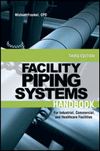Steel Exec Says Industry Is Undergoing “A Revolution”
Sutherland said the transformation of the industry is likely to provide investors a more stable and prosperous future than has been seen over the last 25 years. He said the steel industry witnessed the demise of more than 40 companies over the last few years. Many of these have since consolidated and rationalized production facilities, which led to the partial rebuilding of a sector, which now boasts new labor agreements, significantly reduced legacy costs and rationalized and/or consolidated production facilities.
At the same time, Sutherland said further events, particularly in China, have led to significant increase in demand for all raw materials. “This unparalleled sequence of events has led to a rise in prices that many steel analysts believe has resulted in a new global demand structure for steel … There is reason to believe the steel industry as a whole has the opportunity to fare better than it has in the last 25 years.”
For this reason, Sutherland said he is very optimistic about the steel industry as a whole and IPSCO's short and longer term prospects, as the IPSCO model has demonstrated that it is sustainable throughout the highs and lows of the economic cycle. “While I cannot offer guarantees, I am more confident today than I have been in a long time about our company and our industry,” he said to shareholders.
IPSCO operates steel mills at three locations and pipe mills at six locations in Canada and the United States, with a combined annual steel-making capacity of 3.5 million tons. The company's tubular facilities produce line pipe, oil and gas well casing and tubing, standard pipe and hollow structurals.
Looking for a reprint of this article?
From high-res PDFs to custom plaques, order your copy today!








